
We Are Not Powerless: LGBTQIA2+ Flourishing Today
March 23, 2023
Whitewashing Anime Adaptations: Ghost in the Shell and Dragonball Evolution
May 4, 2023Sponsors
- National Center for Institutional Diversity
- Anti-Racism Collaborative
- Diversity Scholars Network
- University of Michigan Library
- Asian/Pacific Islander American Studies Program
- Department of Film, Television, and Media, Digital Studies Institute
Over the years, the institutional policies, practices, and discourses surrounding affirmative action have changed drastically, and with the impending Supreme Court decision, there is renewed attention to this issue that continues to have a significant impact on how institutions of higher education work to forward diversity, equity and inclusion on their campuses. In the wake of an impending Supreme Court decision on affirmative action, no matter the legal ramifications of this decision, and the lawsuits that may follow, institutions must be prepared to continue to lead for DEI in higher education in the face of resistance – whether legal or socio-political in nature. This webinar will include a brief socio-historical framing of affirmative action and a panel of administrative leaders/scholars that have experienced state-level affirmative action bans on how they responded and lessons learned.
Speakers
Nancy Cantor
Nancy Cantor, chancellor of Rutgers University–Newark, is recognized nationally and internationally for her leadership in emphasizing the role of universities as anchor institutions in their communities, especially by forging diverse, cross-sector collaboratives and leveraging publicly engaged scholarship to advance racial equity and equitable growth. At Rutgers University–Newark, a diverse, urban, public research university, she leads and promulgates efforts to leverage the university’s many strengths, particularly its exceptional diversity, tradition of high-impact research, and role as an anchor institution in Newark, New Jersey, through strategic investments in five broad areas in which the university’s strengths align with those of cross-sector partners: educational pathways from pre-K through college; equitable growth through urban entrepreneurship and economic development; cultivating creative expression through the arts and culture; strong, healthy and safe neighborhoods; and science in the urban environment.
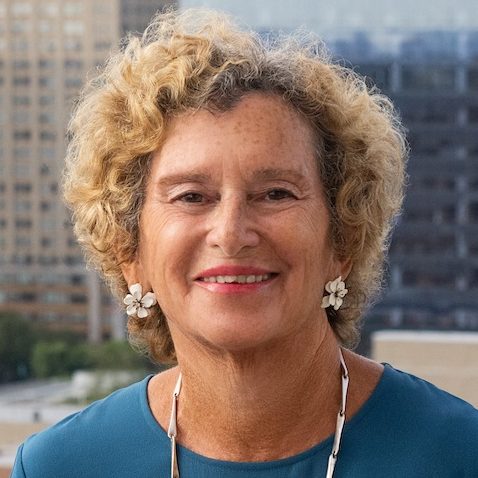
Cantor previously served as chancellor and president of Syracuse University; chancellor of the University of Illinois at Urbana-Champaign; provost and executive vice president for academic affairs at the University of Michigan; dean of Michigan’s Horace H. Rackham School of Graduate Studies and vice provost for academic affairs; professor of psychology and senior research scientist at the Institute for Social Research at Michigan; and chair of the Department of Psychology at Princeton University. While at Michigan, she was closely involved in the university's defense of affirmative action in the cases Grutter and Gratz, decided by the Supreme Court in 2003. A leading voice on inclusion, diversity, and full participation, she speaks and writes frequently on these issues. She is co-editor with Earl Lewis of the Our Compelling Interests book series published by the Princeton University Press.
Cantor is a fellow of the American Academy of Arts and Sciences and a member of the National Academy of Medicine of the National Academies. Among the boards and committees of which Cantor currently is a member are the American Institutes for Research, the American Assembly, the Ford Foundation’s International Fellows Program Advisory Council, Presidents Subgroup of the Anchor Institutions Task Force, the Newark Trust for Education, the New Jersey Performing Arts Center, co-chair of the steering committee of the Presidents Alliance on Higher Education and Immigration, and chair of the Newark Anchor Collaborative.
Tabbye Chavous
Tabbye Chavous is the vice provost for equity & inclusion, chief diversity officer, and a professor of education and psychology at the University of Michigan (U-M). She leads U-M's Office of Diversity, Equity and Inclusion (ODEI), working with ODEI unit leaders and staff on initiatives for students, staff, and faculty, as well as in collaborations and partnerships with campus units, and local community, and national partners. Dr. Chavous reports directly to the provost and is involved in academic affairs, working with the provost’s team on faculty recruitment and retention, tenure and promotion, and faculty development. In her role as chief diversity officer, she also meets regularly with the president as the principal adviser on DEI issues and provides overall leadership of these efforts, including oversight of U-M’s DEI Strategic Plan initiative.
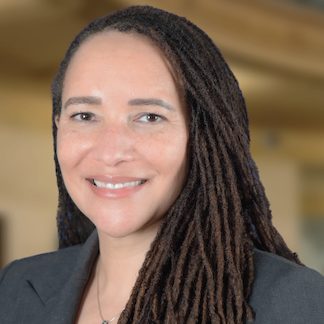
Elizabeth R. Cole
Elizabeth R. Cole is the director of the National Center for Institutional Diversity, and a University Diversity and Social Transformation Professor of Psychology, Women's and Gender Studies, and Afroamerican and African Studies at the University of Michigan. She earned her doctorate at the University of Michigan in personality psychology and taught at Northeastern University before joining U-M in 2000. Her research has been published in journals in psychology and women’s studies, including American Psychologist, Cultural Diversity and Ethnic Minority Psychology, and Psychology of Women Quarterly. She is a past president and a fellow of the Society for the Psychological Study of Social Issues (American Psychological Association Division 9), and a consulting editor for American Psychologist. She has received the Committee on Women in Psychology Leadership Award from the American Psychological Association and the Harold R. Johnson Diversity Service Award, and the Sarah Goddard Power Award from the University of Michigan. Dr. Cole has served as the associate dean for social sciences and the interim dean of the College of Literature, Science, and the Arts, and is currently the director of the National Center for Institutional Diversity (NCID). Her scholarship applies feminist theory on intersectionality to social science research on race, gender, and social justice.
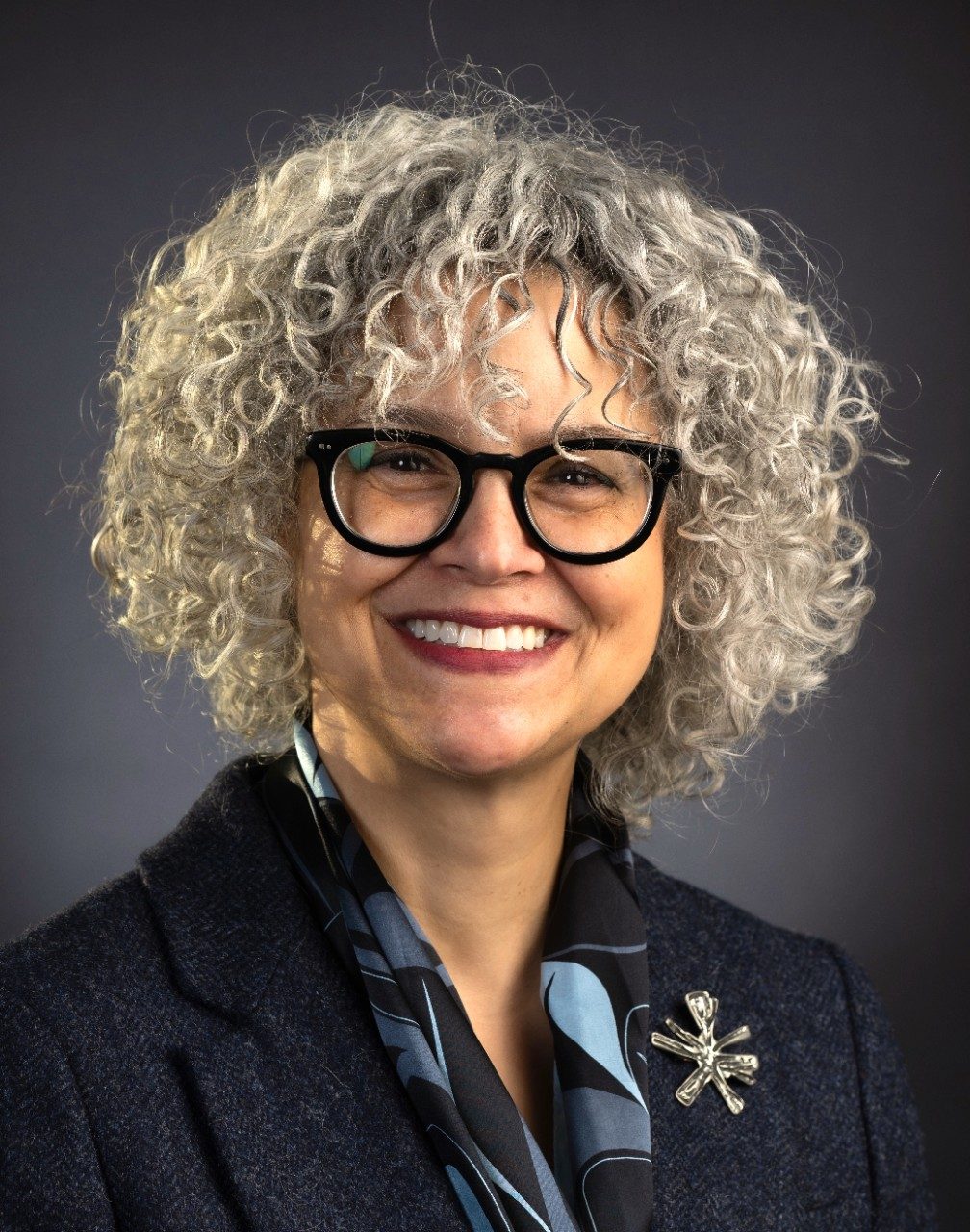
Paulette Granberry Russell, JD
Paulette Granberry Russell, J.D. is the president of the National Association of Diversity Officers in Higher Education (NADOHE). She was elected president of the National Association of Diversity Officers in Higher Education in March 2020. Granberry Russell is a leading national voice and sought-after presenter on issues related to diversity, equity, inclusion, and justice in higher education and beyond. She retired in August 2020 from Michigan State University as senior advisor to the president for diversity, emerita, after more than 20 years advising on diversity and inclusion efforts at the institution.
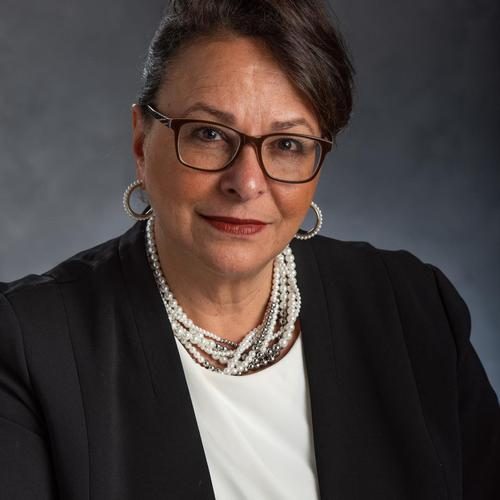
Wade Henderson
Wade Henderson is the principal of Wade J. Henderson, LLC. Henderson serves as an advisor to major corporations and non-profits on matters relating to civil and human rights. He currently serves as senior advisor for The Leadership Conference on Civil and Human Rights and The Leadership Conference Education Fund, organizations he previously led for more than 20 years. The Leadership Conference is the nation’s premier civil and human rights coalition charged by its diverse membership of more than 200 national organizations to promote and protect the civil and human rights of all persons in the United States. The Education Fund is its research, communications, and public education arm.
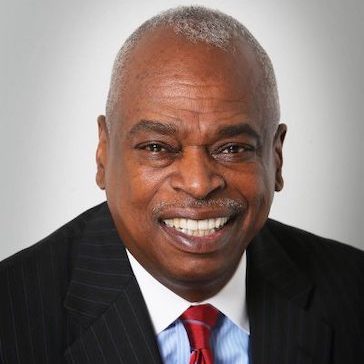
After taking the helm of The Leadership Conference in 1996, he worked diligently to address emerging policy issues of concern to the civil and human rights community and to strengthen the effectiveness of the coalition. Under his stewardship, The Leadership Conference became one of the nation’s most effective organizations in advocating for progressive civil and human rights policies.
Henderson currently serves on the board of directors of the Center for Responsible Lending, where he works to address the long-term problem of student loan debt. Henderson is the retired Joseph L. Rauh, Jr. Professor of Public Interest Law at the University of the District of Columbia School of Law. He previously served on the board of trustees of the Educational Testing Service and the University of the District of Columbia Law School Foundation. Henderson also served as an inaugural member of the FDIC Advisory Committee on Economic Inclusion.
Henderson is the recipient of numerous awards and honors including the Hubert H. Humphrey Award for Civil and Human Rights; the Congressional Black Caucus Phoenix Award; the US State Department’s Eleanor Roosevelt Human Rights Award; and the AFLAC Lifetime Achievement Award.
Sylvia Hurtado
Sylvia Hurtado is a professor of education in the School of Education and Information Studies, and has directed the Higher Education Research Institute at the University of California, Los Angeles (UCLA) for over a decade. She has written extensively on diverse students’ college experiences, the campus racial climate, and higher education equity and inclusion. In addition to many publications in these areas, she is co-editor of two books that each won International Latino Book Awards: “Hispanic Serving institutions: Advancing Research and Transformative Practice” (Routledge Press), and “The Magic Key: The Educational Journey of Mexican Americans from K-12 to College and Beyond (University of Texas Press).
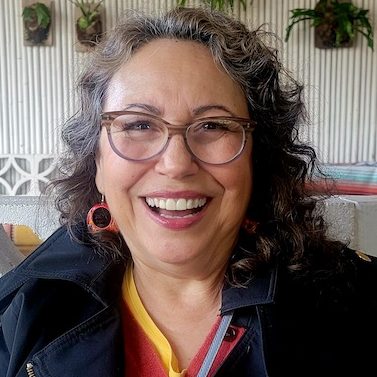
She currently serves as a special advisor to the chancellor at UCLA on Latinx issues and co-chaired the Task Force on Becoming a Hispanic-Serving Institution. Among her achievements, she was elected to the National Academy of Education in 2019 and received the 2018 Social Justice in Education Award from the American Educational Research Association (AERA). She is past president of the Association for the Study of Higher Education. She directed multimillion dollar NIH and NSF-funded projects to study the long term effects of undergraduate education and diversification of the scientific workforce. She now engages in collaborative evaluations of STEM intervention programs, including research on culturally aware mentor training for graduate faculty in the biomedical sciences, and on how STEM student-centered interventions result in diversity, equity, and inclusion in science.
Her early engagement as a first-generation college student led to roles in college admissions, graduate admissions, and student support, and her developing interest in higher education as a field of study. Dr. Hurtado obtained her PhD from UCLA, MEd from Harvard Graduate School of Education, and AB in sociology from Princeton University.
Earl Lewis
Earl Lewis is the Thomas C. Holt Distinguished University Professor of History, Afroamerican and African Studies, and Public Policy and director of the Center for Social Solutions. Currently, Lewis co-chairs a presidential initiative, the Inclusive History Project, which is designed to study, document, and engage the U-M community in understanding the university’s history with respect to diversity, equity, and inclusion. Previously, from March 2013–2018, he served as president of The Andrew W. Mellon Foundation. A noted author and esteemed social historian, he is past president of the Organization of American Historians.
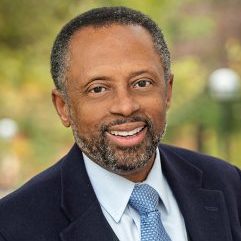
A fellow of the American Academy of Arts and Sciences (2008) and the American Academy of Political & Social Sciences (2022), he is the recipient of twelve honorary degrees. Lewis has held faculty and administrative appointments at Michigan (1989–2004) and the University of California, Berkeley (1984–89). From 2004–2012, he served as Emory University’s provost and executive vice president for Academic Affairs and the Asa Griggs Candler Professor of History and African American Studies. In addition to prior service on a number of nonprofit and governmental boards, Lewis chaired the board of Regents at Concordia College-Moorhead, is a trustee and vice chair of the board at ETS, and a director of 2U and the Capital Group, American Funds. Lewis serves on the Hopkins Press Advisory Board and as the secretary for the American Academy of Arts and Sciences.
